Land acknowledgement
We acknowledge that the place known today as Adkins Arboretum exists as the result of duress.
The Arboretum is located in the traditional homeland of the Choptank People, Algonquin-speaking Woodland Indians who lived along the Choptank River basin. Before European settlers arrived in the early 1600s, there were approximately 20,000 Choptank living on the Eastern Shore. Less than 150 years later, these native people were driven to near extinction by illness, fighting, and forced migration.
We acknowledge our occupation of Choptank land. The Choptank People were the only American Indians on the Eastern Shore to be granted a reservation by the English colonial government. They stayed on their land until 1822, when the state of Maryland sold it without their consent, partly to pay for a share in Washington, D.C.
We acknowledge that despite institutionalized policies of displacement, erasure, and forced assimilation, descendants of the Choptank People have managed to maintain deep social, physical, spiritual, and kinship relationships with the land. These descendants have joined with members of the Nanticoke and Pocomoke tribes to form the Nause-Waiwash (nah-sooWAY-wash) Band on Maryland’s Eastern Shore.
We acknowledge that the Nause-Waiwash Band of Indians continues to maintain relationships with the lands where we gather today and actively works to educate the public about their history. We honor their kinship with these lands and waters.
As uninvited visitors to Indigenous land, we acknowledge our shared responsibility with you, our readers, to repair unhealthy relationships, restore a place out of balance, and steward life. We are all part of this journey.
To make this statement more meaningful, we strongly encourage you to delve deeper into the history of the Choptank People, the Nause-Waiwash, and land acknowledgment statements. Resources are available at msac.org and elsewhere. We also urge you to consider donating or making institutional resources available to tribal peoples. Lastly, we invite you to reflect on how you can improve your relationship with the lands you steward.
